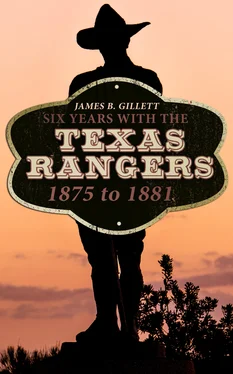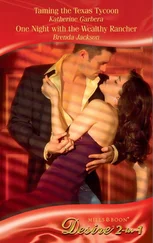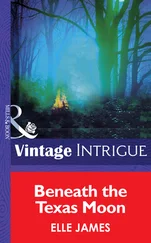James B. Gillett - Six Years With the Texas Rangers - 1875 to 1881
Здесь есть возможность читать онлайн «James B. Gillett - Six Years With the Texas Rangers - 1875 to 1881» — ознакомительный отрывок электронной книги совершенно бесплатно, а после прочтения отрывка купить полную версию. В некоторых случаях можно слушать аудио, скачать через торрент в формате fb2 и присутствует краткое содержание. Жанр: unrecognised, на английском языке. Описание произведения, (предисловие) а так же отзывы посетителей доступны на портале библиотеки ЛибКат.
- Название:Six Years With the Texas Rangers: 1875 to 1881
- Автор:
- Жанр:
- Год:неизвестен
- ISBN:нет данных
- Рейтинг книги:3 / 5. Голосов: 1
-
Избранное:Добавить в избранное
- Отзывы:
-
Ваша оценка:
- 60
- 1
- 2
- 3
- 4
- 5
Six Years With the Texas Rangers: 1875 to 1881: краткое содержание, описание и аннотация
Предлагаем к чтению аннотацию, описание, краткое содержание или предисловие (зависит от того, что написал сам автор книги «Six Years With the Texas Rangers: 1875 to 1881»). Если вы не нашли необходимую информацию о книге — напишите в комментариях, мы постараемся отыскать её.
Six Years With the Texas Rangers: 1875 to 1881 — читать онлайн ознакомительный отрывок
Ниже представлен текст книги, разбитый по страницам. Система сохранения места последней прочитанной страницы, позволяет с удобством читать онлайн бесплатно книгу «Six Years With the Texas Rangers: 1875 to 1881», без необходимости каждый раз заново искать на чём Вы остановились. Поставьте закладку, и сможете в любой момент перейти на страницу, на которой закончили чтение.
Интервал:
Закладка:
The following morning Captain Roberts took a southwest course from Kickapoo Springs and paralleled the Indian trail we had left the evening before. It was late in the day before we picked the trail up again, and many of the boys were afraid we had lost it altogether, but the captain laughed at their fears and never doubted that we should find it again. The Indians, as their trail showed, were now traveling over a tolerably rough country, which made our progress slow. About noon we found some rain water, and, as it was fearfully hot, we camped for dinner and to give the horses a short rest.
When the boys went out to catch their mounts we found that we had camped right in a bed of rattlesnakes. Two of our horses had been bitten. Jim Day's Checo had a head on him as big as a barrel, while the captain's horse, Old Rock, had been bitten on his front leg just above the ankle, and it had swollen up to his body. Neither of the animals was able to walk. Jim Day could not be left alone in that Indian country, so Captain Roberts detailed Private Cupps to stay with Day until the horses died or were able to travel,—in either case they were then to return to camp. The animals soon recovered and Day and Cupps beat us back to camp.
The pack loads were now doubled on one mule so Captain Roberts could ride the other. Reduced to thirteen men, we followed the Indians until night. It was a hard day on both men and beasts, so we camped where we found a little water in a draw that drained into the South Concho River. Considering the way we had come the captain thought we had covered sixty miles during the day's ride. We had two rather old men on the scout, Mike Lynch and Andy Wilson, and they were nearly all in. I awoke Andy at 2 a. m. to go on guard. The poor fellow was so stiff he could hardly stand, and I tried to get him to go back to bed, telling him I would stand his guard, but he was game, and in a few minutes hobbled out to the horses and relieved me.
Early in the morning we were up and traveling. The mule Captain Roberts was riding did not step out as fast as Old Rock had done, and the boys had an easier time keeping up. We camped at noon on just enough rain water to do us and took up the trail again after dinner. The trailers stopped suddenly, and as we rode up Captain Roberts asked what was the matter. They said it seemed as though the Indians at this point had rounded up the horses and held them for some cause or other.
The captain dismounted and swept the country with his field glasses. He circled around where the horses had been standing and found where a lone Indian had walked straight away from the animals. He followed the tracks to an old live oak tree that had been blown down. Then the reason for the stop became apparent: the Indians had sighted a herd of mustangs grazing just beyond this tree and the redskin had slipped up on them and killed a big brown mare. Captain Roberts picked up the cartridge shell the old brave had used and found it to be from a .50 caliber buffalo gun. We also found the mustang, from which the Indians had cut both sides of ribs and one hind quarter.
Captain Roberts was much elated.
"Boys," he said with a smile, "we now have ninety-five chances out of a hundred to catch those Indians. They will not carry this raw meat long before stopping to cook some. We have followed them now over one hundred and fifty miles, and they have never stopped to build a fire. They are tired and hungry and probably know where there is water not far away."
He spoke with such confidence that I marveled at his knowledge of the Indian habits.
We were now on the extreme western draw of the South Concho River, far above the point at which the water breaks out into a running stream. Finally the trail led out on that level and vast tract of country between the head of South Concho and the Pecos on the west. These Indians turned a little north from the general direction they had been traveling, and all of a sudden we came to some rock water holes.
Here the redskins had built three fires, cooked both sides of the mustang ribs and had picked them clean. From this high table land they could look back over their trail for fifteen miles. The captain thought they had been there early in the morning, as the fires were out and the ashes cold. We did not lose any time at this camp, but hurried on, following the trail until late in the evening, when the trailers again halted. When we came up we found that the trail that had been going west for nearly two hundred miles had suddenly turned straight north.
Captain Roberts seemed to be puzzled for a time, and said he did not understand this move. About one mile north there was a small motte of mesquite timber. This he examined through his glasses, seeming to me to examine each tree separately. The trail led straight into these trees, and we followed it. In the mesquite timber we found the Indians had hacked some bushes partly down, bent them over, cut up the horse meat they had been carrying with them into tiny strips, strung it on the bushes and, building a fire beneath them, had barbecued their flesh. The redskins had made the prettiest scafelo for meat cooking I ever saw. We found plenty of fire here, and the captain was sure we would have an Indian fight on the morrow.
From the trees the trail swung west again. The redskins were traveling slowly now, as they evidently thought they were out of danger. Just before sundown the scout halted, and we were ordered not to let any smoke go up lest the band we were trailing should spot it and take alarm. As soon as we had cooked our supper Captain Roberts had the fires carefully extinguished. It had been a good season on the table lands and there were many ponds filled with water, some of them one hundred yards wide. We camped right on the edge of one of these big holes and where the Indians had waded into it the water was still muddy. The boys were cautioned not to strike a match that night as we were certain the Indians were not far ahead of us. We covered between forty and fifty miles that day.
Camp was called at daybreak. We dared not build a fire, so we could have no breakfast. We saddled our horses and again took the trail. Old Jennie, the pack mule, was packed for the last time on earth, for she was killed in the fight that shortly followed. As soon as it was light enough to see a pony track two of the boys traced it on foot and led their horses, the remainder of our party coming along slowly on horseback. By sunrise we were all riding and following the trail rapidly, eager to sight the marauding thieves. We had traveled some five or six miles when Paul Durham called Captain Roberts' attention to a dark object ahead that looked as if it were moving. The captain brought his field glasses to bear on the object specified and exclaimed it was the Indians.
He ordered the boys to dismount at once, tighten their cinches, leave their coats and slickers and make ready to fight. As we carried out this order a distressing stillness came over the men. Captain Roberts and Sergeant Hawkins were the only ones of our party that had ever been in an Indian fight, and I suppose the hearts of all of us green, unseasoned warriors beat a little more rapidly than usual at the prospect of soon smelling powder. Captain Roberts called out to us in positive tones not to leave him until he told us to go, and not to draw a gun or pistol until ordered, declaring that he wanted no mistake on the eve of battle. He ordered the pack mule caught and led until we went into the fight, when she was to be turned loose.
The Indians were out on an open prairie dotted here and there with small skirts of mesquite timber. The captain thought our only chance was to ride double file straight at them in the hope they would not look back and discover us. We moved forward briskly, and as luck would have it, we got within four or five hundred yards of the redskins before they sighted us.
Читать дальшеИнтервал:
Закладка:
Похожие книги на «Six Years With the Texas Rangers: 1875 to 1881»
Представляем Вашему вниманию похожие книги на «Six Years With the Texas Rangers: 1875 to 1881» списком для выбора. Мы отобрали схожую по названию и смыслу литературу в надежде предоставить читателям больше вариантов отыскать новые, интересные, ещё непрочитанные произведения.
Обсуждение, отзывы о книге «Six Years With the Texas Rangers: 1875 to 1881» и просто собственные мнения читателей. Оставьте ваши комментарии, напишите, что Вы думаете о произведении, его смысле или главных героях. Укажите что конкретно понравилось, а что нет, и почему Вы так считаете.












